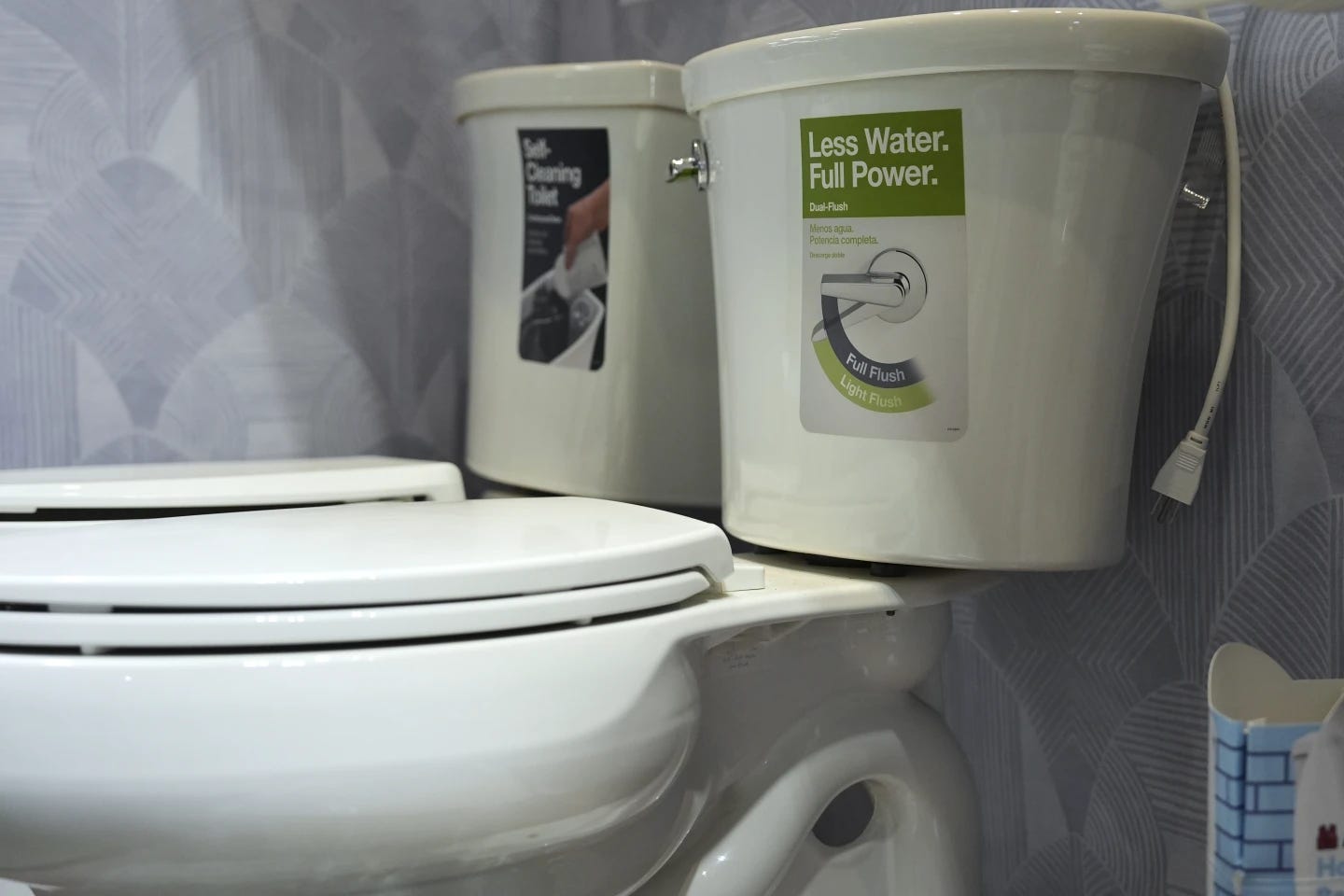Trump Moves to Roll Back Appliance Efficiency Rules, Sparking Debate Over Costs and Conservation
WASHINGTON (AP) — President Donald Trump, known for his complaints about weak showerhead flow affecting his "perfect" hair, is once again targeting high-efficiency household appliances. His latest exe
As part of his broader push to “unleash American energy,” Trump signed an order promising to ease regulations on dishwashers, showerheads, refrigerators, laundry machines, toilets, and other household fixtures. While supporters say this will give consumers more choices, critics warn it could lead to unnecessary energy waste and increased costs.
Trump’s Executive Order: More Water, Less Regulation
Trump’s order ensures that consumers won’t be forced to purchase high-efficiency appliances, echoing similar actions taken during his first term. The order explicitly mentions preserving access to traditional lightbulbs, gas stoves, and other household products.
For Trump, the issue is personal. During his first presidency, he frequently criticized showerheads for not providing enough water pressure, joking that he wasn’t getting wet enough and that his hair needed to be just right. He also falsely claimed that Americans had to flush toilets "10 or 15 times" due to low water flow.
What Efficiency Standards Are in Place?
Since 1992, federal regulations have limited new showerheads to a maximum flow rate of 2.5 gallons per minute (9.5 liters). Under the Obama administration, the rule was tightened to apply that restriction to the entire showerhead, even if it had multiple nozzles.
During his first term, Trump attempted to roll back this rule, allowing each nozzle to spray 2.5 gallons per minute. However, the Biden administration reinstated the stricter Obama-era standard in 2021.
The regulations extend beyond showerheads. Over the years, efficiency rules have improved the performance of dishwashers, washing machines, and other appliances, reducing water consumption and saving consumers money on utility bills.
Can Trump Actually Change These Rules?
Federal law includes a "no-rollback clause," which prevents new efficiency standards from being weaker than existing ones. This means that any attempt to loosen regulations would have to navigate around these legal protections.
Experts say Trump’s approach will likely involve creating loopholes rather than directly eliminating regulations.
“What President Trump tried to do in his first administration was find ways to let energy- and water-wasting products flood the market,” said Andrew deLaski, executive director of the Appliance Standards Awareness Project. “To see toilets and showerheads on the list of presidential priorities is striking.”
Why Does This Matter?
Beyond consumer power bills, efficiency standards play a crucial role in energy conservation and reducing emissions.
Margie Alt, director of the Climate Action Campaign, emphasized that “the cheapest and cleanest megawatt is the one we don’t use.” Experts argue that efficiency measures are a cost-effective way to curb carbon emissions and meet climate goals.
Manish Bapna, president of the Natural Resources Defense Council, called energy efficiency “the most effective antidote to energy price inflation.”
Global Efforts vs. U.S. Policy Shifts
While the U.S. debates appliance standards, international climate policies have prioritized energy efficiency. The 2023 Dubai climate accord set a goal to double global energy efficiency improvements by 2030. However, a year later, the issue was largely overlooked at climate negotiations.
“Efficiency isn’t always the most exciting topic, but it’s one of the most effective ways to reduce emissions,” said Rocky Mountain Institute CEO Jon Creyts.
What This Means for Consumers
Despite Trump’s push for deregulation, there’s no requirement for consumers to switch back to less efficient appliances. Research shows that most Americans are satisfied with high-efficiency products.
A 2022 AP-NORC poll found that about 75% of U.S. adults had used energy-efficient appliances in the past year, with cost savings being the main motivator.
Consumer advocates argue that modern appliances perform well without excessive energy use.
“We don’t need unlimited energy and water to wash clothes, clean dishes, or take a good shower,” deLaski said. “Going back to outdated, energy-wasting appliances would only drive up people’s bills—and it’s just not necessary.”


